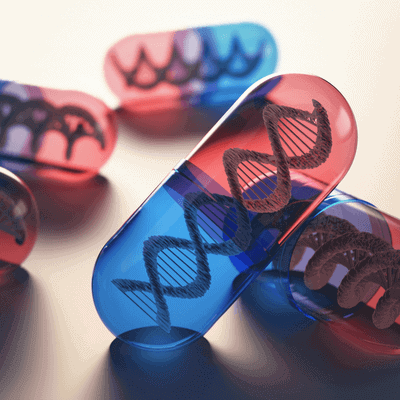Bioinformatics Analyses for Cell & Gene Therapy Research
- 14th October 2022
- Posted by: Breige McBride
- Categories: Bioinformatics, Cell and Gene Therapy

Fios Genomics has over a decade of experience providing bioinformatics analyses of NGS data which can now be applied to accelerate cell and gene therapy research. Our bioinformatics analyses support cell and gene therapy research throughout the discovery and manufacturing processes and can help with:
- Target identification
- Target validation
- Copy number and clonal analysis for manufacturing support
- Antisense Oligonucleotide (ASO) research
- Discovering actionable insights about T cell expansion & Antigen Transduction
Learn more about the different ways our bioinformatics analyses can support your cell and gene therapy research below.
Target Identification
Anyone aiming to create a new drug must first identify the drug’s target. This is the molecule in the body that is associated with the disease to be treated by the drug. At Fios, we use bioinformatics approaches to identify drug targets. We do this by analysing data from preclinical experiments on animal models, diseased human tissue and cell lines, as well as data from High-Throughput Screens.
Target Validation for Cell & Gene Therapy Research
Once a drug target is identified, we conduct robust analyses on the generated data to validate the target. Our rigorous analyses indicate if the drug target reacts as it is expected to. We can analyse various types of datasets to achieve target validation, including knockout models, CRISPR screens or gene expression data. In addition, we can further validate the targets by conducting in silico comparisons of the analysis results with publicly available data.
Copy Number and Clonal Analysis
At Fios we have a wealth of experience in conducting copy number and clonal analyses for a range of applications, such as for manufacturing support purposes in cell and gene therapy research. Some of our previous projects include:
- Assessing gene copy numbers
- Associating copy number variants with cancer cell line gene dependency
- Combining gene expression changes with copy number variant and mutational data that are indicative of a compound’s sensitivity
Antisense Oligonucleotide Research
Antisense Oligonucleotides (ASOs) are small fragments of nucleic acids that can bind specific molecules of RNA by complementarity, to block it from making a protein or working in other ways which can affect gene expression. At Fios, we can design in silico ASOs and we can also assess off-target hybridisation of ASOs to further your cell and gene therapy research.
T Cell Expansion & Antigen Transduction
Using bioinformatics approaches we can uncover actionable insights about T cell expansion and antigen transduction. We have particular experience revealing such insights to advance CAR-T therapy research.
Accelerate Your Cell and Gene Therapy Research
If you would like to learn more about any of the ways we can support cell and gene therapy research, or if you would like to discuss support for your own research project, then please contact us. We always have time to advise on the most suitable bioinformatics analyses to reach your research goals and we are also happy to advise on experimental design.
Author: Breige McBride, Content and Social Media Manager, Fios Genomics
Reviewed by Fios Genomics Bioinformatics Experts to ensure accuracy
See also:
Gene Expression Analysis from Fios Genomics
Download RNASeq Data Analysis Report
Fill in the form below to access the data analysis report our team created. Here, bioinformatics analysis of publicly available RNA sequencing (RNASeq) datasets helped to identify genes and pathways associated with psoriasis and the response of psoriatic skin to modulation of the AhR.
Leave a Reply
You must be logged in to post a comment.

